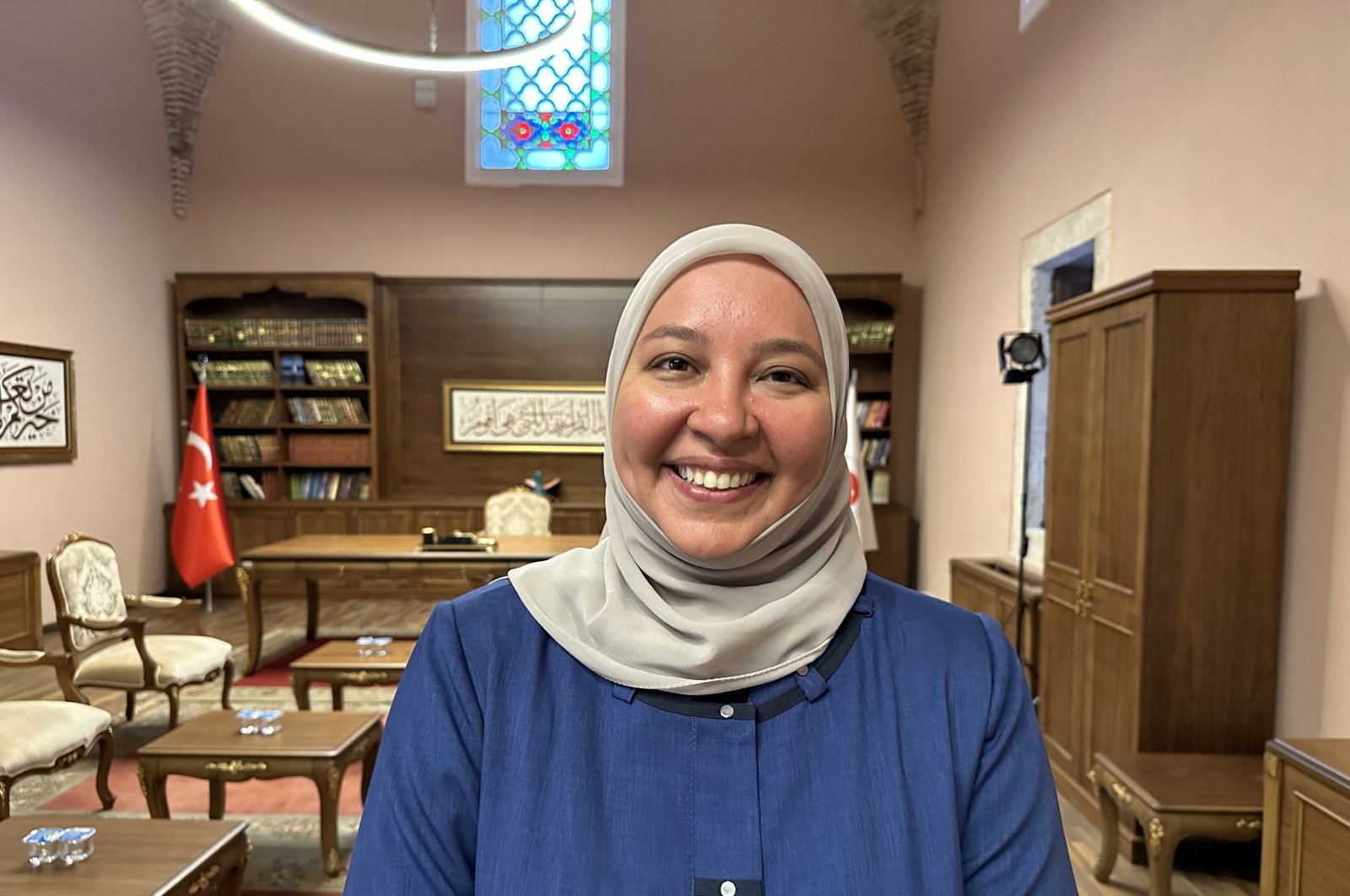
All through historical past, human psychology has held a central place within the subject of medication. Probably the most sensible minds have devoted themselves to exploring its intricacies, motivated by the only real function of unraveling the enigmas of what continues to be essentially the most intricate side of human beings and their essence. For hundreds of years, this pursuit has endured, pushed by the insatiable quest to grasp the complexities of the human thoughts and its profound impression on humanity as a complete.
Rania Awaad, a senior psychiatrist from Stanford College within the U.S., is on an identical journey, simply with a barely completely different goal: difficult what she calls the Eurocentric narrative of psychology perpetuated all through fashionable historical past.
That has introduced her to Türkiye, the place Awaad and her staff are retracing the historical past of psychological well being care at historic establishments often known as “darüş-şifa,” lots of which date again centuries to the Ottoman or Seljuk eras.
“This idea is essential as a result of these are establishments which are a part of, and impressed by, Islamic custom,” Awaad, a scientific affiliate professor of psychiatry on the Stanford College Faculty of Medication, informed Anadolu Company (AA).
“They weren’t simply merely hospitals. They had been additionally establishments of therapeutic.”
The rationale why she determined to give attention to these establishments is due to their holistic strategy to all “senses of human beings,” defined the 42-year-old Cairo-born American, who’s the director of the Stanford Muslim Psychological Well being and Islamic Psychology Lab.
She additionally runs a non-profit group known as Maristan, which she stated is an idea much like the darüş-şifa.
“Additionally the idea of therapeutic the soul, the nefs, which is one thing form of lacking, I’d say, in fashionable psychology right this moment,” she stated, referring to the Arabic phrase utilized in Islam’s holy ebook Quran, which additionally interprets because the self or one’s true self.
Origins of the idea
Awaad stated she is engaged on a ebook exploring “what was the idea that impressed these therapeutic establishments and particularly how they heal psychological sickness.”
Her ebook is anticipated to be printed subsequent yr by distinguished publishing home Routledge.
Based on Awaad, darüş-şifa led to a serious shift in psychological well being care.
“Hospitals, previous to the Islamic civilizations, could have had people who find themselves mentally unwell in them,” she stated.
“However after getting the Islamic civilization come, there’s an actual emphasis on … the preservation of the mind, preserving the aqel (mind in Arabic), and so there was a robust emphasis on ensuring that those that had been unwell had been handled.”
Awaad was in Türkiye’s northwestern Edirne province final yr to go to a darüş-şifa that had been changed into a museum centered on the historical past of well being care.
That impressed her to take a street journey by means of Türkiye together with her staff this yr, which she has additionally been sharing together with her over 126,000 followers on Instagram.
“We began in Bursa … (and) ended up in Kayseri, which was very stunning, very useful to see what occurred to the darüş-şifa. From there, we might go to Sivas, then to Amasya,” she stated.
Awaad and her staff visited darüş-şifa in Istanbul final Friday, a few of that are open to the general public, whereas they obtained particular permission for the others.
‘Built-in sense of therapeutic’
The darüş-şifas had an strategy to therapeutic that took all facets under consideration, from clear consuming to drugs and contemporary air, all of which was to “heal the soul fully,” based on Awaad.
One of the vital thrilling issues we discovered was “this very built-in sense of therapeutic,” she stated.
“They had been utilizing water remedy in most of those darüş-şifas, not simply the fountain, however the idea of the form of sound you’ll hear from the water. They had been treating them within the water for therapeutic and the hamam that was normally connected to it,” she stated.
“Additionally sound remedy, utilizing the ‘makam,’ or the tones. If any individual had been very depressed, they’d play a tone that will carry them up. If any individual had been very anxious, they’d play a tone that will calm them down. It is a stunning idea of integrating all of the completely different senses of therapeutic.”
From her travels in Türkiye, Awaad stated she got here to grasp that “a number of these darüş-şifas truly continued for use as hospitals till the early 1900s,” opposite to the earlier analysis she got here throughout.
Different researchers purported that “they had been uncared for and fashionable drugs was changing them, however truly, we discovered it getting used even in parallel with fashionable drugs,” she defined.
Awaad stated the historical past of psychology is written from a really Eurocentric view.
“It basically says a number of psychology began in Europe, and all the writing or discoveries of psychological sicknesses had been by Europeans,” she stated.
“However truly, a number of the analysis I actually have completed … and different the publications have proven that so many of those ailments or sicknesses like … OCD (obsessive-compulsive dysfunction) … was a millennium earlier than the Europeans,” she added.
Within the U.S., she stated, many individuals really feel “disconnected from psychology right this moment.”
“The Islamic civilization had a stupendous therapeutic heritage,” stated Awaad.
“You see this in the fantastic thing about darüş-şifas and it must be introduced again to heal folks round us. That is my curiosity in altering the narrative or rewriting the narrative of psychology, and I’m additionally making it relatable for Muslims round us.”